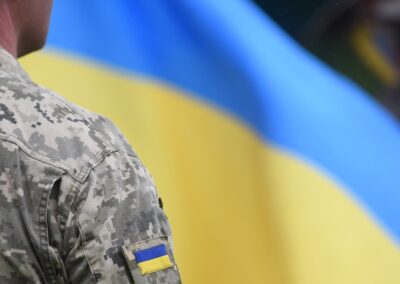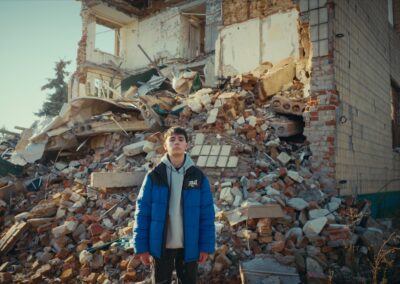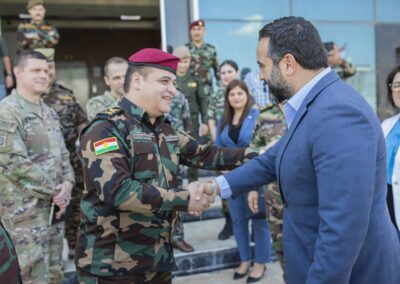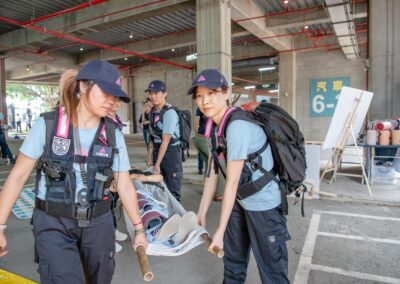From Iraq to Syria – Part 1
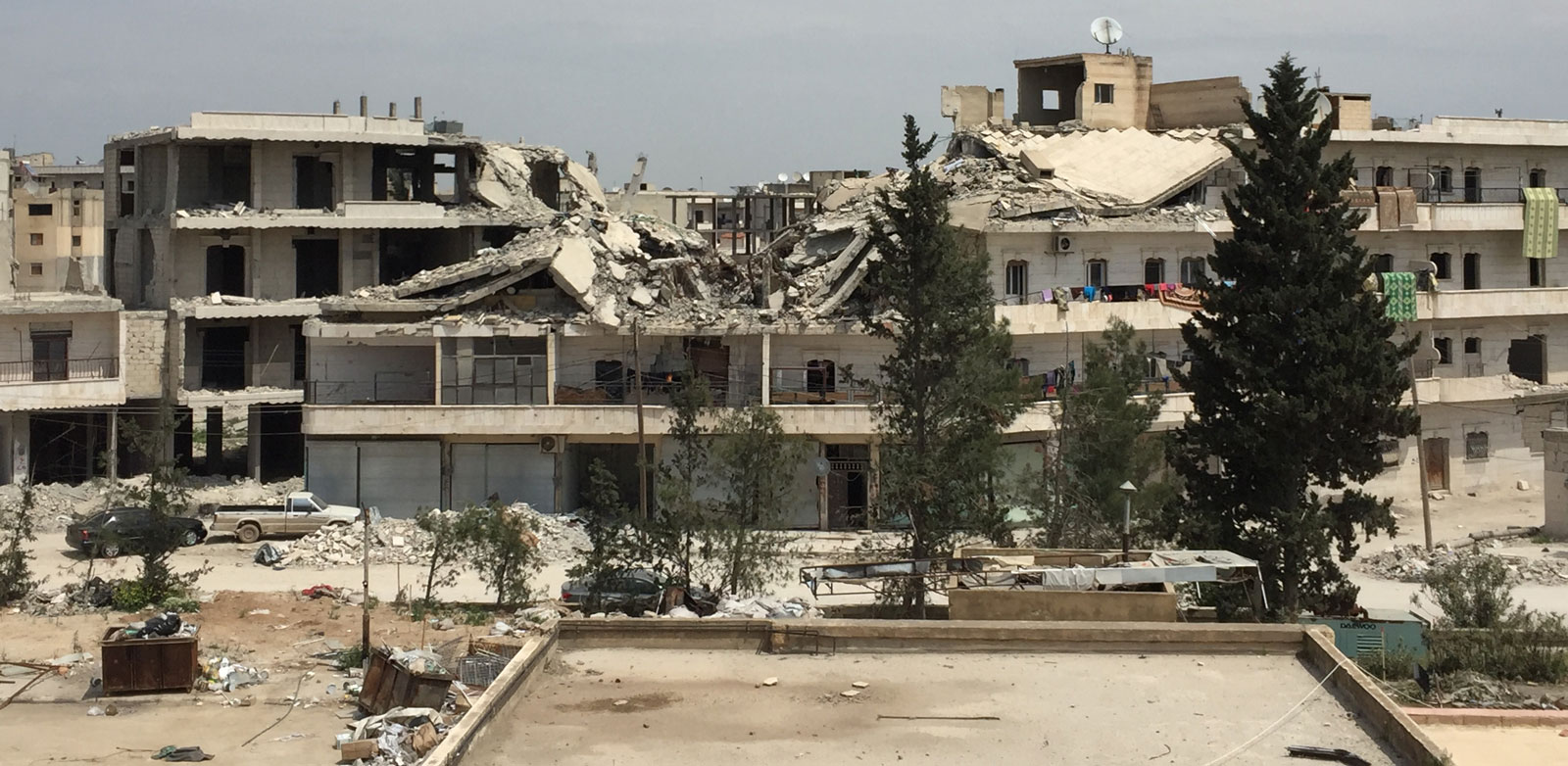
Despite the bloody conflicts roiling across both, my military flight from Iraq to northern Syria was a routine affair. I was traveling into Syria with three goals in mind: to meet with the US Army Civil Affairs teams, assess the humanitarian situation on the ground, and explore assistance projects that would help ease the suffering of the local populace while also furthering US objectives. Of my goals, the last was the most crucial. That’s because in modern conflict, assisting beleaguered populations victimized by war, extremists, and displacement is not only a moral imperative, it’s vital for an enduring resolution. To put it plainly, desperate people are more likely to seek solace in the phony promises of religious charlatans than in the sober assertions of those who must govern. Humanitarian assistance is an essential security requirement.
Our aircraft rocked and swayed through the slightly humid air. Beneath us, the Mesopotamian landscape, flush from the spring rains, unfolded like a tapestry. The serenity of the scene from above stood in stark contrast to the situation below, where violence and conflict are seemingly never-ending. Five thousand years: that’s how long the people and places I was flying over have been engaged in civilization—yet stability, coexistence, and the rule of law are as distant today as memories of the fabled Code of Hammurabi.
When we landed, I returned to more immediate (and mundane) tasks. My military counterpart showed me to my room. I fell asleep struck by the fact that years in military barracks, training exercises, and overseas deployments, I seem to always sleep on the same stained mattress.
The next morning, the Civil Affairs team and I traveled to Manbij. As we crossed the Euphrates River, I wondered how many armies had traversed the waterway over the centuries. When you think of it, it’s quite extraordinary how deeply this river and its twin, the Tigris, have shaped the flow of human civilization. So many empires, kings, tyrants, armies, wars, battles, myths, and legends have ebbed and flowed upon their murky waters.
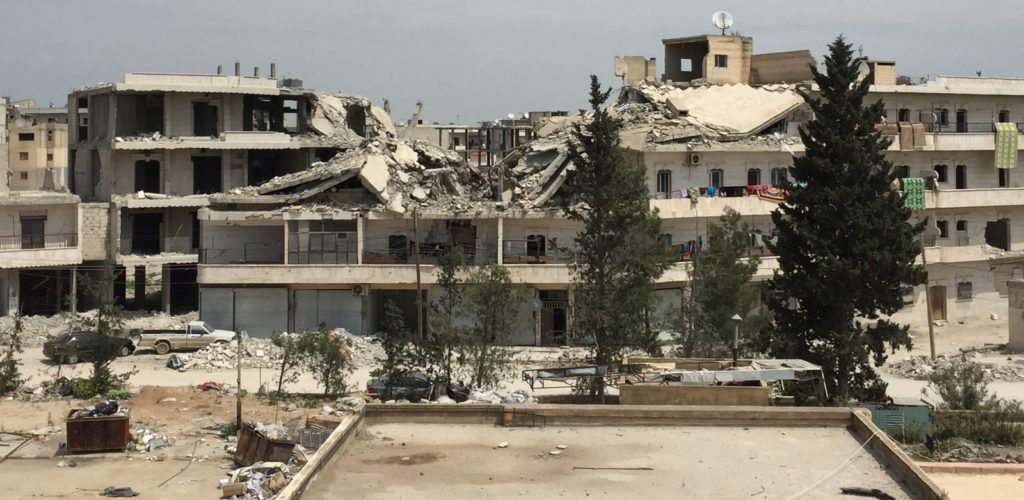 Destroyed building near Manbij Public Hospital in Northern Syria.
Destroyed building near Manbij Public Hospital in Northern Syria.
We pulled up at Manbij Public Hospital and headed straight into our meeting where the hospital director cordially welcomed us. A short while later, our group was joined by Dr. Fateh who, within minutes, took over the meeting as the more docile director melted into the background.
In the many site assessments that I’ve conducted across the Middle East, one of the most challenging things for me is to avoid cynicism. Most of the time, you can boil these meetings down to a two-sentence dialogue:
The Americans ask: “What are your needs?”
“Everything,” the locals respond.
Indeed, more often than not, the locals do need everything. After all the suffering they’ve been through, they cannot be denied their want. Still, there is something peculiar about the position we now find ourselves in as a nation: those with nothing expect everything from us.
After everything had been discussed in the meeting, Dr. Fateh toured us around his hospital, ushering us from floor to floor while explaining in vivid detail the damage inflicted by Islamic State terrorists as they evacuated the building. The terrorists destroyed what they could and set fire to the rest. But the disheartening ugliness was tempered by the fact that local authorities have managed to repair the first two floors of the hospital, where newly installed floors sparkle under newly installed lights. When the tour was finished, we exchanged small talk and warm goodbyes, then carefully expressed best wishes while taking care not to make any promises. When you work in the Middle East, every word, gesture, or remark is pregnant with meaning, expressed, implied or otherwise. Nothing, no matter how slight or trivial, should uttered without calculation.
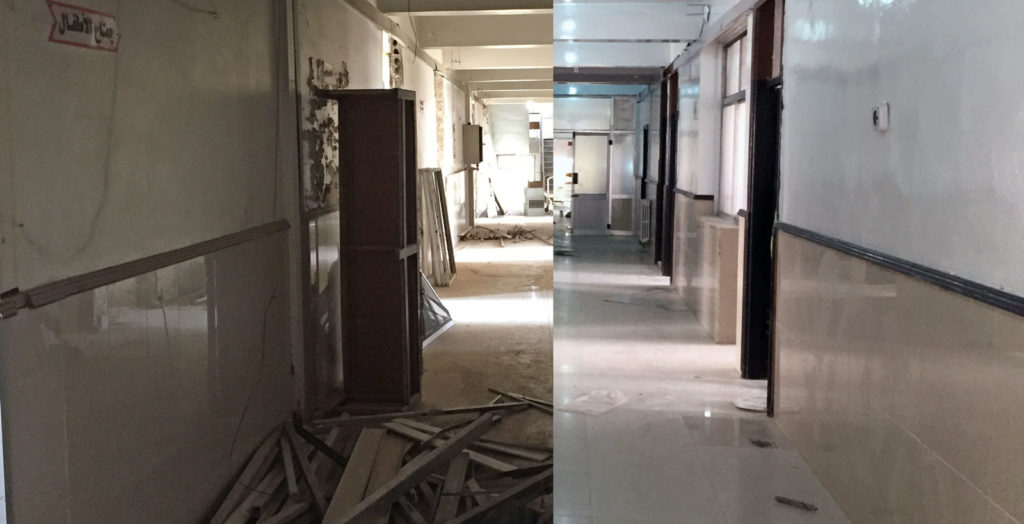
(Left) ISIS fighters destroyed or burned what they could as they evacuated Manbij Public Hospital. (Right) Hospital floor that has been recently renovated.
We stopped for lunch not far from the hospital. The cook, dressed in over-designed bleached jeans that made little sense for the task at hand, theatrically sliced tender chunks of fat-drenched chicken Shawarma off the rotating spit. I had my sandwich with copious amounts of creamy garlic sauce. Come what may, the Middle East can still serve up amazing grub. No wars will extinguish that.
As we drove through Manbij, one of the soldiers pointed out the window.
“That’s Murder Square,” He said.
“Why is it called that?” I asked.
“That’s where ISIS used to bring people and cut their heads off.”
What savages, I thought. Then I reminded myself: the first two floors of Manbij Hospital are sparkling under the lights.
Check out some of the photos I took below:
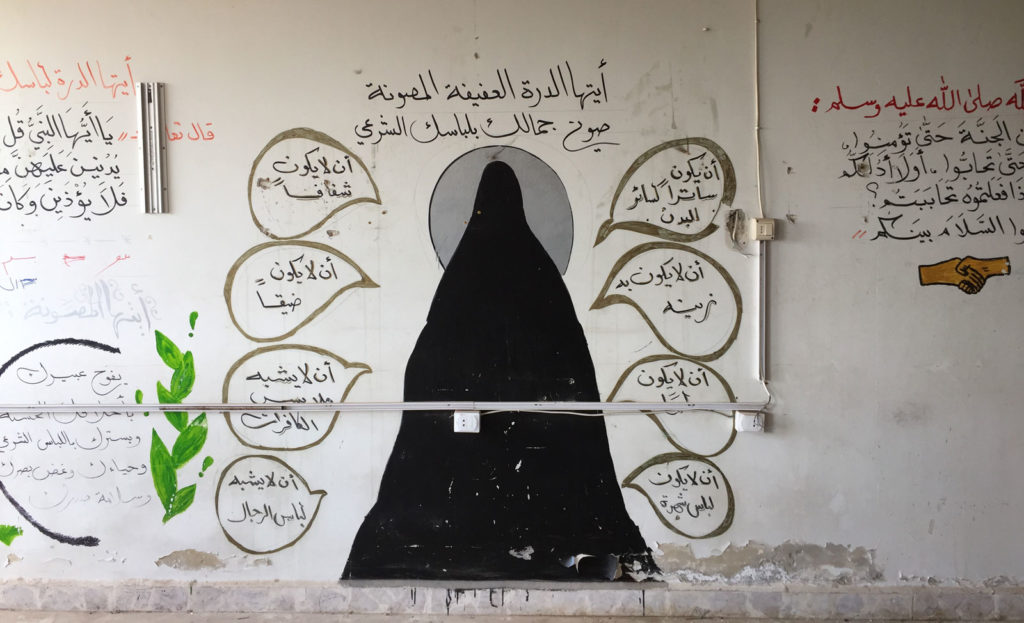
ISIS graffiti instructing women to dress in accordance with their strict Islamic standards.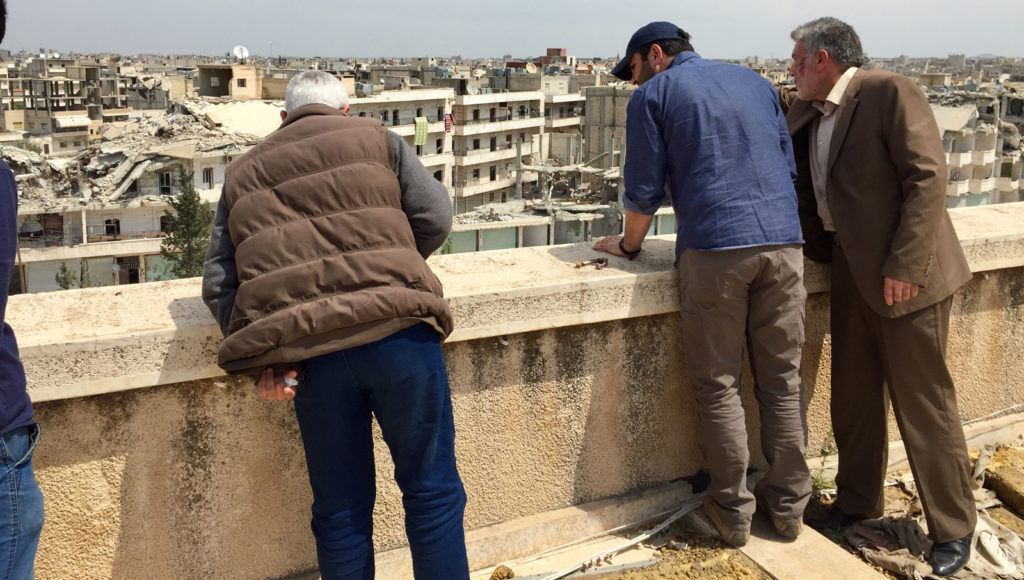
Dr. Fateh showing me the damage in the area.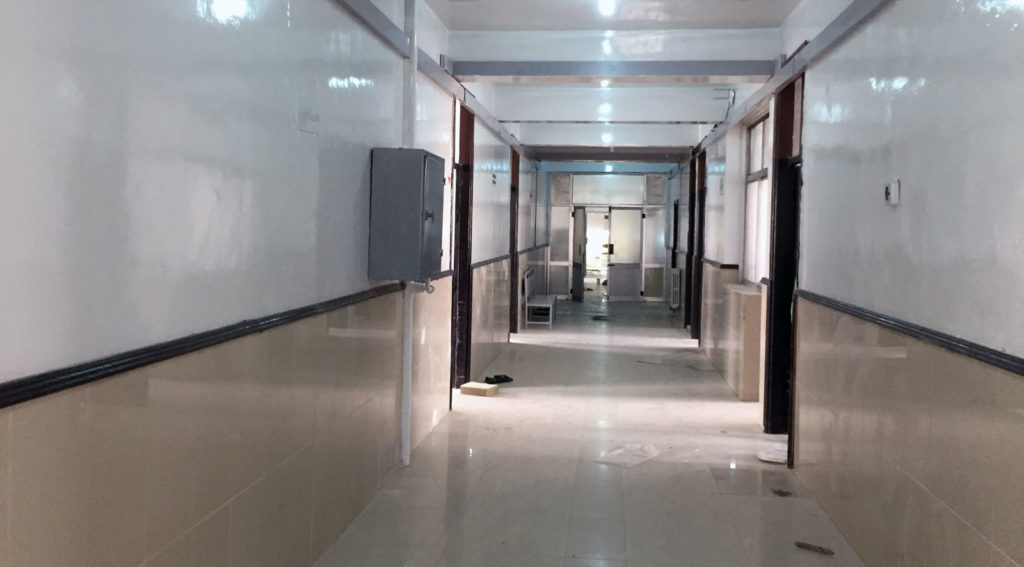
In a hopeful sign, the first two floors of the hospital have been mostly renovated.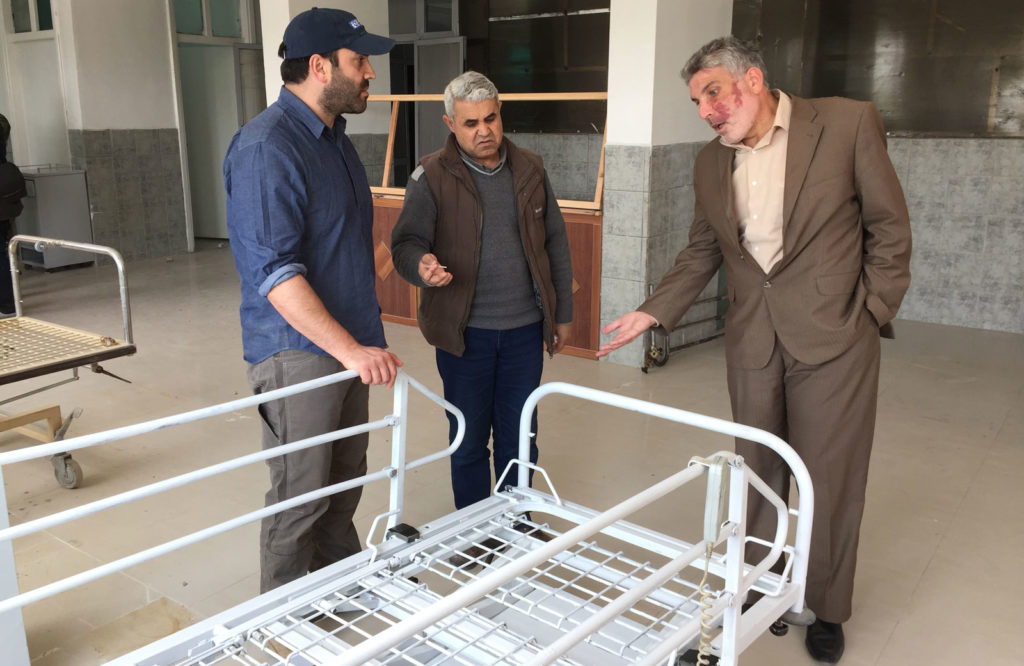
Dr. Fateh explaining how the damaged beds were repaired and repainted.


